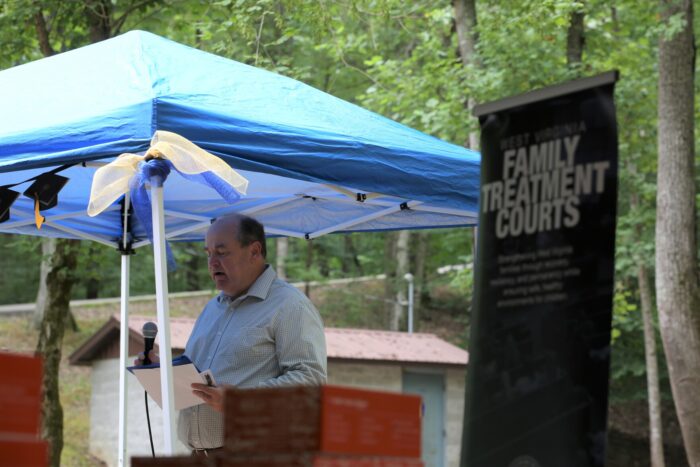Family Treatment Courts are specialized, problem-solving courts designed to support parents in overcoming substance use disorders while working toward the safe reunification of their families.
But these vital programs nearly ran out of money.
The West Virginia Legislature created Family Treatment Courts (FTC) as a pilot program in 2019, later making them a permanent program under supervision of the West Virginia Supreme Court of Appeals in 2021. There are currently 14 Family Treatment Courts operating in 18 counties.
The courts have reunited 437 children with FTC-graduate parents and demonstrated notable reductions in the amount of time those children spent in foster care while the cases progressed.
The Supreme Court included an additional $1 million in its Fiscal Year 2026 budget request to cover their operations for this fiscal year. According to a press release from the courts, Gov. Patrick Morrisey included this funding in his proposed budget bill. The budget the courts finally received, however, did not include this increased funding.
In the past, these courts had been funded through federal grants and McKesson Corporation settlement funds administered by the West Virginia Office of Drug Control Policy.
In early August, the Supreme Court announced that it had secured a $280,000 State Opioid Response grant to continue the program through the end of September.
Thursday, the state’s high court announced it had received up to $1,162,038 through the Public Defender Services’ Impacting Child Abuse and Neglect (iCan) grant program. The grant funds are sourced through federal participation under Title IV-E of the Social Security Act, which supports legal services in child welfare cases.
While the iCan grant funds will support Family Treatment Courts for the remainder of the current fiscal year, justices reiterated they will continue to pursue more sustainable funding options for the program, including seeking funding for Family Treatment Courts in next year’s budget request from the legislature.
“We are committed to working with lawmakers as they craft next year’s budget bill to include funding for Family Treatment Courts,” said Justice C. Haley Bunn, who will serve as chief justice during 2026. “The court will provide lawmakers with information on the benefits of Family Treatment Courts to demonstrate how the program eases the burdens on our state’s foster care system and ultimately saves taxpayers money.”
Add WVPB as a preferred source on Google to see more from our team

























